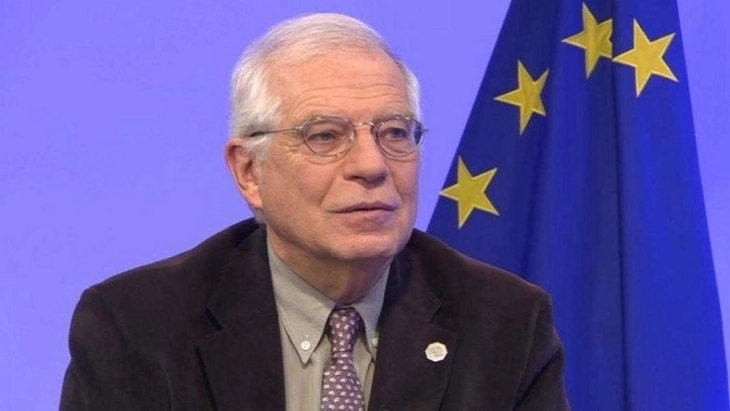On Monday, the European Union’s foreign affairs chief announced that a collective naval effort had successfully thwarted 11 attacks by Yemen’s Houthi militants in the Red Sea.
Josep Borrell addressed reporters in Brussels, revealing that within a span of less than two months since its inception, the joint operation had safeguarded 68 vessels while repelling 11 hostile encounters.
The operation, sanctioned by EU member states’ foreign ministers on February 19, involves naval vessels providing armed escorts to commercial ships navigating the perilous waters of the Red Sea.
The Houthi insurgents, aligned with Iran, have been targeting maritime traffic in purported retaliation to Israeli military activities in Gaza.
Rear Admiral Vasileios Gryparis, the operation commander, disclosed at the same press briefing that their forces had neutralized nine unmanned aerial vehicles, one unmanned surface vessel, and intercepted four anti-ship ballistic missiles.
However, Gryparis cautioned against premature assessments of the mission’s accomplishments, emphasizing that despite the challenges, they have showcased their capabilities. He emphasized the extensive operational area spanning the Red Sea, the Gulf of Aden, the Arabian Sea, the Sea of Oman, the Gulf, and a portion of the Indian Ocean, surpassing the territorial expanse of the entire European Union.
Borrell highlighted the economic repercussions of Houthi attacks, pointing out that commercial shipping between Europe and Asia has been compelled to adopt lengthier routes, circumventing South Africa’s Cape of Good Hope. Consequently, the extended voyage duration has led to a doubling of transportation costs for containers from China to Europe.
He underscored the significant disruption to global trade caused by the crisis, noting that whereas previously, 13% of world trade traversed through the Red Sea, current circumstances have diverted traffic, with only half of the previous daily shipments utilizing the Suez Canal. In light of these developments, Borrell stressed the necessity of the intervention.






Comments are closed for this post.